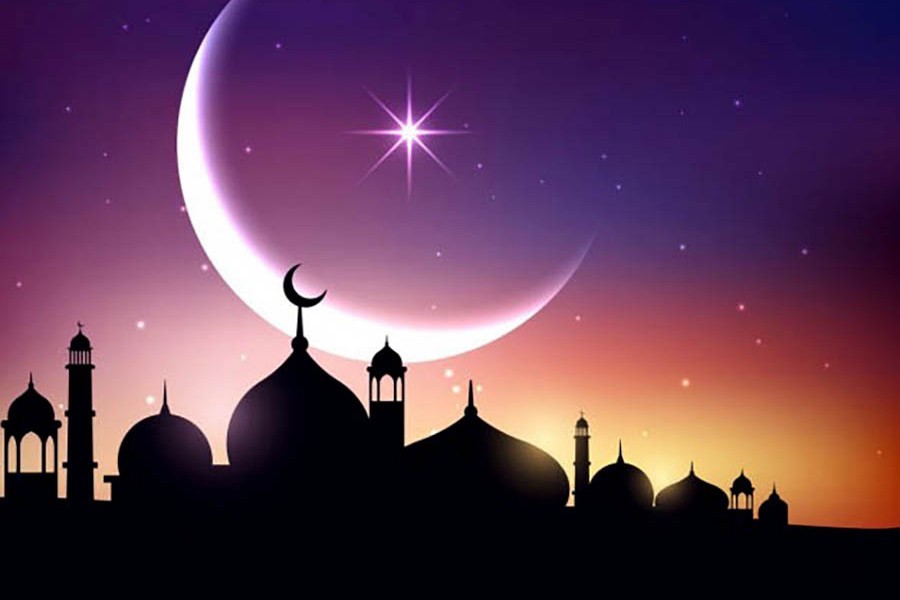The second most important Muslim religious festival, Eid-ul-Azha, is going to be celebrated with due solemnity and religious fervour tomorrow, Sunday. It is also the 10th day of Dhu-al-Hijjah, the 12th month of the Islamic lunar calendar. The festival will be celebrated for a period of three to four days. As the tradition goes, the day of the Eid celebration is subject to sighting of the moon following the completion of the Hajj, the annual pilgrimage to Mecca. Large Eid congregations will be held in mosques as well as open spaces in the city, in every town and village of the country where prayers will be offered seeking divine blessing for peace and prosperity of the Muslim Ummah and mankind.
Like every year, Muslims in Bangladesh and in other parts of the world will celebrate this holy occasion through qurbani, that is, slaughtering sacrificial animals. The occasion commemorates prophet Ibrahim's total surrender to the will of the Creator as he was about to sacrifice his dearest son, Ismail, to obey God's command. As stated in the Islamic scriptures, pleased with his devotion, God ordered Jibrail, the supreme angel, to replace Ibrahim's son, Ismail, with a sheep for sacrifice. And it is this ultimate example of sacrifice that is the essence and spirit of the Eid-ul-Azha. So, it is important that the core message of sacrifice is not forgotten while celebrating the religious festival this time when in the northeastern districts of Sylhet and Sunamganj, some 7.2 million people have lost everything they possessed to the unprecedented flash floods. Hence, this Eid-ul-Azha is also going to be an occasion to test how steadfast the country's able Muslims are in their iman, or faith. Will they demonstrate the spirit of sacrifice by sharing what they plan to expend for the Eid also with their flood-affected Muslim brethren?
Also, consider the predicament of the low-income and vulnerable section of the population battered by the runaway cost of living. Unlike their more fortunate neighbours, the Eid celebration can hardly be a joyous occasion for them. This Eid has, therefore, offered the better-off Muslims the opportunity to share their joy with their less fortunate neighbours. Many of the affluent members of the Muslim community across the country are often seen to engage in unnecessary extravagance as they buy the most expensive cattle from the Eid market to demonstrate their power and pelf. But this is against the fundamental spirit of this holy and solemn religious occasion. Hopefully, this is going to be a different Eid in that it would be one of moderation and an occasion to show compassion towards fellow people disadvantaged by extreme poverty and natural calamities.
As it is usually the case, the capital has witnessed a mass exodus of Eid holidaymakers from the city before this Eid-ul-Azha, too. They are bound for their country homes where they would reunite with their near and dear ones to celebrate the Eid together. And like every year, as they have braved all the ordeals while booking tickets for buses, trains and water transports, they might also be facing difficulties of both usual and unanticipated kind on the way. The government will, therefore, be required to adopt adequate safety measures including deployment of law enforcers on the roads and waterways to ensure a safe journey for the Eid travellers.
Happy Eid-ul-Azha to all.


